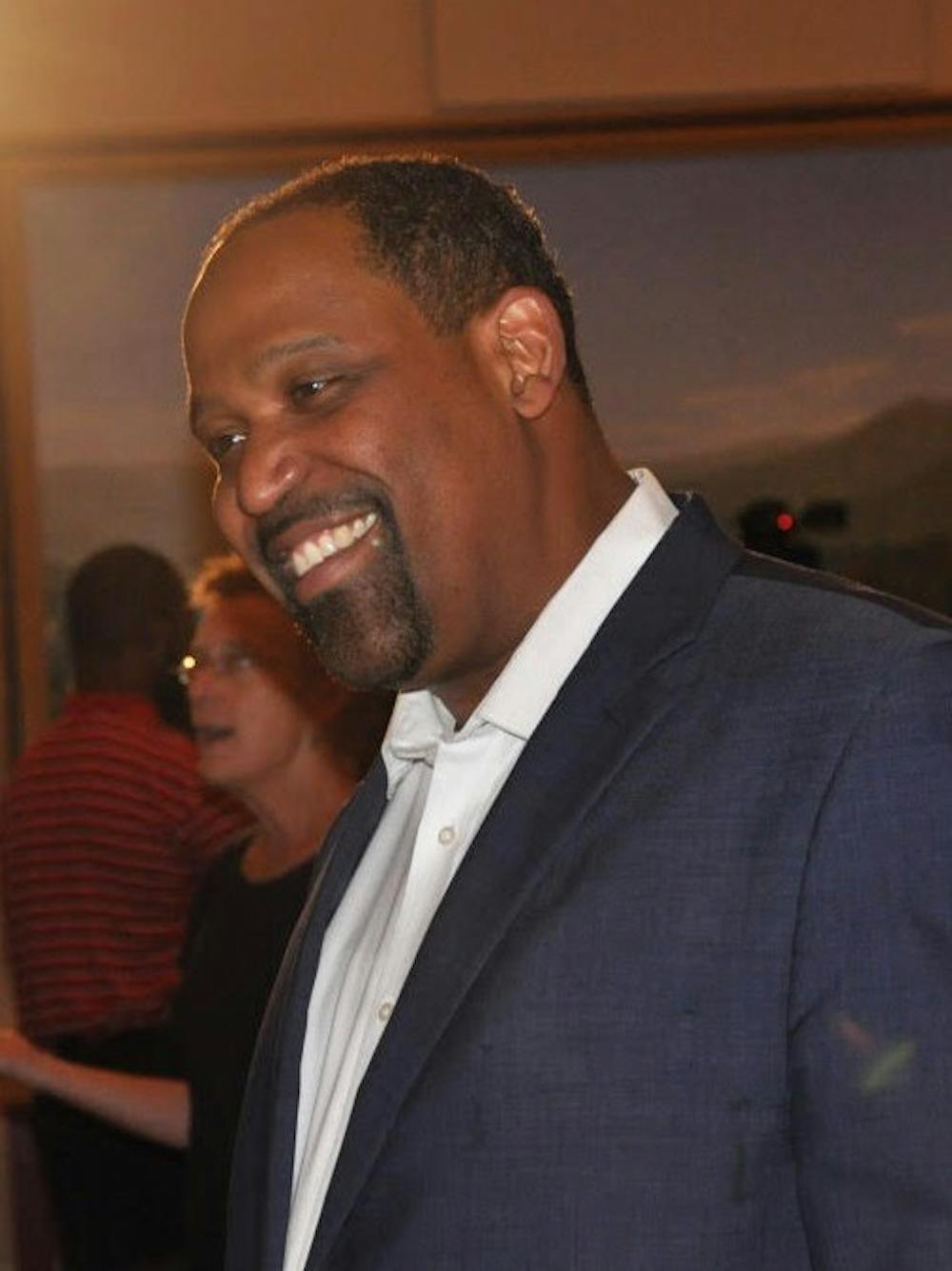Welcomed warmly by members of both the University’s graduate and undergraduate communities, Harvard Law Prof. Ronald Sullivan spoke at the University’s Law School Wednesday.
In his work at Harvard, Sullivan promotes discourse about criminal justice system reform and its concept of finality. He is also the director of the Harvard Law School’s Criminal Justice Institute, has served as the director of the Public Defender Service for the District of Columbia and writes about criminal law, procedure and race-related topics.
Sponsored by the Engineering School, the talk was organized to introduce diverse perspectives to the University community and celebrate inclusivity in academia. Sullivan’s appearance was part of the “Excellence Through Diversity Distinguished Learning Series.” About 75 people attended the talk.
Sullivan was first introduced by John F. Gates, associate dean for diversity and inclusion at the Engineering School, followed by Assoc. Law Prof. Deirdre Enright.
Gates introduced Sullivan as a “good friend” and established himself as a witness to Sullivan’s long history of success. The two hailed from the same town in Indiana and worked at Harvard at the same time, with Gates serving as an associate dean and Sullivan holding a teaching position as a law professor.
In her remarks, Enright highlighted Sullivan’s work on issues plaguing the justice system on a national scale.
“When Ron Sullivan climbs into the trenches and takes his pristine education — his credentials, his experience with them … it doesn’t matter who he is working for or for whom he is designing the right model,” Enright said. “He instantly draws a light to a place that it never ever shines, which is the criminal justice system for the indigent.”
In his speech, Sullivan said the Western world too often sees concepts like justice as impossible and unattainable.
“I think we as citizens have to understand justice in a more pragmatic way,” Sullivan said. “That is, justice is something that we make happen. Justice is something that we do.”
He continued to characterize the concept of justice as accessible and relevant.
“Justice, my friends, is not some rarified extraction with no literal or practical application,” Sullivan said.
Sullivan encouraged the audience to act on behalf of those “society has deemed the low, the last, the least, the lost and left-out.”
Sullivan called attention to a future of equality for the criminal justice system.
“When we do justice, that is when we are able to convert a problematic legal landscape that serves the interest of a few into a well manicured courtyard of fairness,” Sullivan said. “Wouldn’t that be beautiful?”
Sullivan emphasized that in the pursuit of justice, it is vital to ensure equality and fairness. He warned audience members to not “let the jailhouse doors clang shut” without due process of the law. When justice is properly executed, Sullivan said an individual’s means does “not define the quality of their citizenship.”
“That’s what lawyers do, that’s what lawyers can do. It’s a noble, noble profession and its not limited to lawyers,” Sullivan concluded. “Each and every one of you, everybody, can do some justice.”
The next guest in the speakers series is physician-geneticist Francis Collins. Collins has been the director of the National Institutes of Health since August 2009 and will speak at the Old Cabell Hall ballroom on Oct. 10. Collins notably led the Human Genome Project, a genomics research initiative conducted by the National Human Genome Research Institute. He also founded The BioLogos Foundation and is a Presidential Medal of Freedom recipient.







